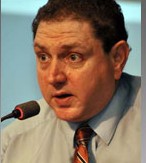
Thanks to a reader who has alerted me to an article by a philosopher of history, Aviezer Tucker, on Richard Carrier’s Proving History in the prestigious peer-reviewed journal History and Theory. I have since seen an rss feed alerting me to Carrier’s own comments on the review. I look forward to reading it but meantime I’d like to remind readers of a post I did a few years ago on the author:
I also see that Tucker’s review has been made open access. (The journal’s policy is to make a work open access if the author or their supporting institution pays a fee of $3000. So do appreciate the access you have to this article. It’s free to you but the publisher is not giving it away free.)
The Reverend Bayes vs Jesus Christ.
See also Carrier’s comments. No doubt I’ll write something once I have had a chance to read it, too.
If you enjoyed this post, please consider donating to Vridar. Thanks!

Neil:
Thank you for the information!
The article is a must read…
Sincerely,
Michael J. Alter
If you get the time, Neil, you should read the book Superforecasers by Philip Tetlock.
As this quote points out, Bayesianism isn’t about using Bayes Theorem, but more about thinking of your state of knowledge in terms of probability and updating that state according to the rules of probability.
The only unfortunate thing about this is that the title may prime people to think that Bayesianism is only about predicting the future and thus might not have any relevance to other types of knowledge (e.g, history).
You can read a short article about Superforecasters at Washington Post.
Thanks, I have ordered it.
Bayesian in a nutshell.
http://www.tandfonline.com/doi/full/10.1080/00324728.2015.1122826
Thanks. And another interesting one is Superforecasting: The Art and Science of Prediction by Tetlock and Gardner.